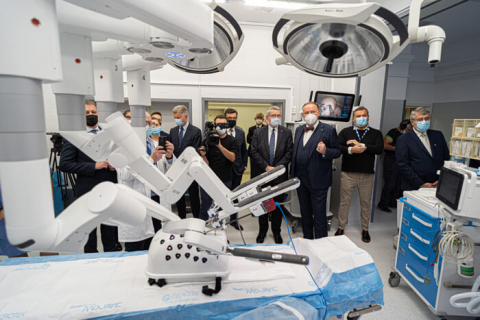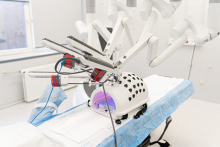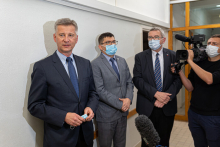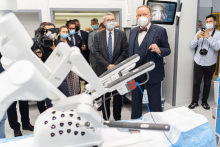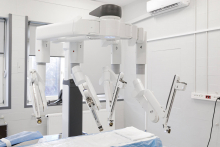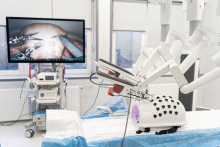The laboratory was established as part of the University's Program in Urologic Robotic Surgery (ESPRIT). The purchase of the robot, worth over PLN 15 million, was financed by a grant from the Ministry of Education and Science
- It is estimated that the number of cancer patients could increase by 15% in 5 years and by 28% in 10 years. This includes cancers of the genitourinary system. Opening of the Robotic Urology Laboratory equipped with the Da Vinci XI robotic surgery system will allow the use of innovative treatment methods and training of the modern urologists - explained Professor Piotr Radziszewski, head of the Department, who is responsible for the ESPRIT program.
Model XI surgical system with integrated table and enhanced surgical console enables advanced, complex and minimally invasive abdominal procedures. The system is also equipped with an advanced simulator for training physicians.
- Robotics technology is already a standard in the United States and most European Union countries, but in Poland its application is still marginal. The creation of the Robotic Urology Laboratory at the MUW Clinical Hospital creates innovative scientific, research and training opportunities in the field of robotic surgery of the genitourinary system - emphasized Prof. Zbigniew Gaciong, Rector of MUW - This will enable minimally invasive surgery for patients with prostate, kidney and bladder cancer. The robot makes it possible to perform even very complex procedures with precision. The use of modern technology makes patients return to full health faster.
Civilization diseases, which include, among others, malignant tumors, are the second of seven strategic directions of research and development works mentioned in the current National Research Program.
- Nearly 70% of cancer cases in men and 60% in women occur after age 60. For Polish patients, 5-year survival rates are on average lower than European rates by 10-25 percentage points, depending on the tumor - explained Prof. Piotr Radziszewski.
Expansion of applied surgical treatment standards through the use of robotic technology will contribute to a number of innovative scientific studies in urology.
- They will allow the development of modern, previously unused strategies for aggressive surgical treatment of selected cancers of the genitourinary system, as well as the improvement of strategies already functioning in the world. The creation of facilities for robotic surgery at a high European level will also allow to perform research in the field of didactics for the assessment of practical aptitude of students - stressed Professor Piotr Radziszewski.
